ROOM: The Space magazine is one of the top magazines on space exploration, technology and industry. At ROOM, we share a common objective – advancement of peaceful space exploration for the benefit of humankind, all while bringing you comprehensive articles on a variety of popular topics. Our authors include researchers and industry leaders from all over the world, which lets us bring you the newest and comprehensive information about space answers magazine.
 July 2020
Lego’s replica space programme
July 2020
Lego’s replica space programme
... relevance does this rose-tinted view of a children’s toy have for the modern-day space professional? The answer, of course, depends on one’s personal perspective, but these creations are arguably part of... to the space industry, space insurance and space education sectors. He is the author of six books, including The Cambridge Dictionary of Space Technology and Space: The Fragile Frontier, has edited three space industry magazines and written ...
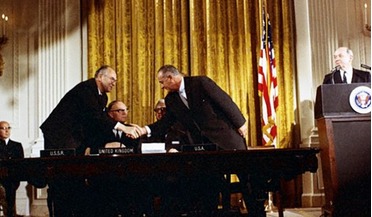 July 2019
Who owns outer space?
July 2019
Who owns outer space?
... has with our Moon and other outer space bodies. Angela Dennis considers the interplay between developments such as space mining and the existing body of space law in an attempt to answer the question of who owns the potential wealth... to science, economics, culture and law. She has degrees in law and physics and has written for magazines, radio and broadcast documentaries. She was recently the ‘in-house’ writer and researcher for London-based...
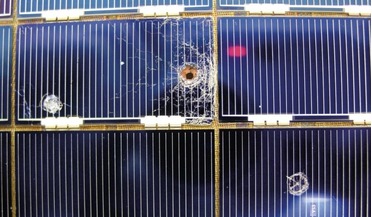 February 2021
Space archaeology - preserving our orbital heritage
February 2021
Space archaeology - preserving our orbital heritage
..., it may be possible to interrogate the attitudes and interpretations most widely held across the space community. The first answer — yes, let’s remove space junk as soon as possible — is unsurprising. The threat posed by debris within the...is significant The second option favoured harvesting the resources that space junk might provide. This option perhaps presents more questions than answers. How should we assess these high value materials and are...
 July 2019
Stepping into space with STEAM
July 2019
Stepping into space with STEAM
... the community. Holly is on the advisory boards for global organisations such as Space Vault, Finsophy, and STEM for Women magazine. She also sits on the Space Economy Task Force in Austin, Texas. Jeff Smith is a Material Control Analyst...
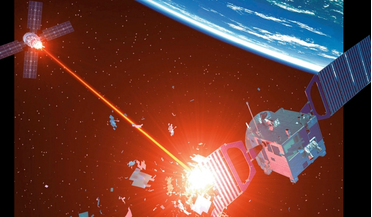 June 2022
Military space – how worried should we be?
June 2022
Military space – how worried should we be?
...space and ‘civilian’ space, with an all-civilian space agency, NASA. The government and media portrayal of early space was unmistakably ‘peaceful purposes’: see the film The Right Stuff, read the US-published Colliers magazine... or Russia’s Teknika Molodezh, admire Mosfilm productions. No missiles there. At the same time, there was a parallel, typically obscured, track of military space development. The same ...
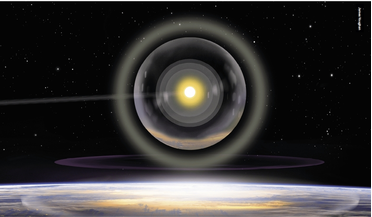 April 2021
Space wars - how they start and how to end them
April 2021
Space wars - how they start and how to end them
...attacks first in space always win the space war, even if they are weaker ‘on paper’ with regard to space weapon systems? Perhaps space war simulations and military exercises can begin to answer these fundamental questions.... Optimised attack orbital regimes that avoid adversary space sensor networks. Notional ...
 October 2021
Space in the movies – lessons for spacefarers
October 2021
Space in the movies – lessons for spacefarers
...Hollywood would have us believe? Simple questions with important answers. So, let’s start with this: what’s the most realistic portrayal of life in space in popular cinema? Apollo 13 film promotional poster. ...is very much worth watching because it effectively shows three points of particular interest to would-be space voyagers. First, space is tremendously inhospitable and, for now at least, living conditions are likely to be claustrophobic,...
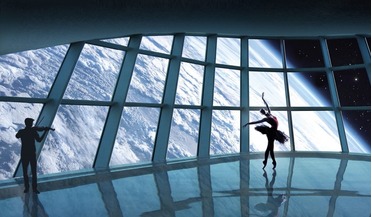 October 2018
The ethics of space exploration
October 2018
The ethics of space exploration
... a philosopher, re-affirming its role as a multi-disciplinary think tank for the global space community. The Space Generation Advisory Council could initiate a project group dedicated to humanities in general, broadening the... narrative do we want to build around our exploration of the cosmos? My personal opinion is that many answers are to be found outside the worlds of business and engineering: from philosophy and ethics to various forms ...
 February 2020
Preserving our space heritage
February 2020
Preserving our space heritage
... missions that we might want to curate? The answer to the latter question is perhaps an easier one to address. Scientific satellites such as the Hubble Space Telescope (HST) have contributed enormously to our understanding...satellite is still likely to need attitude control and thermal management to maintain its physical integrity in the space environment. There are also hazards ‘up there’ which exhibits in terrestrial museums do not have to ...